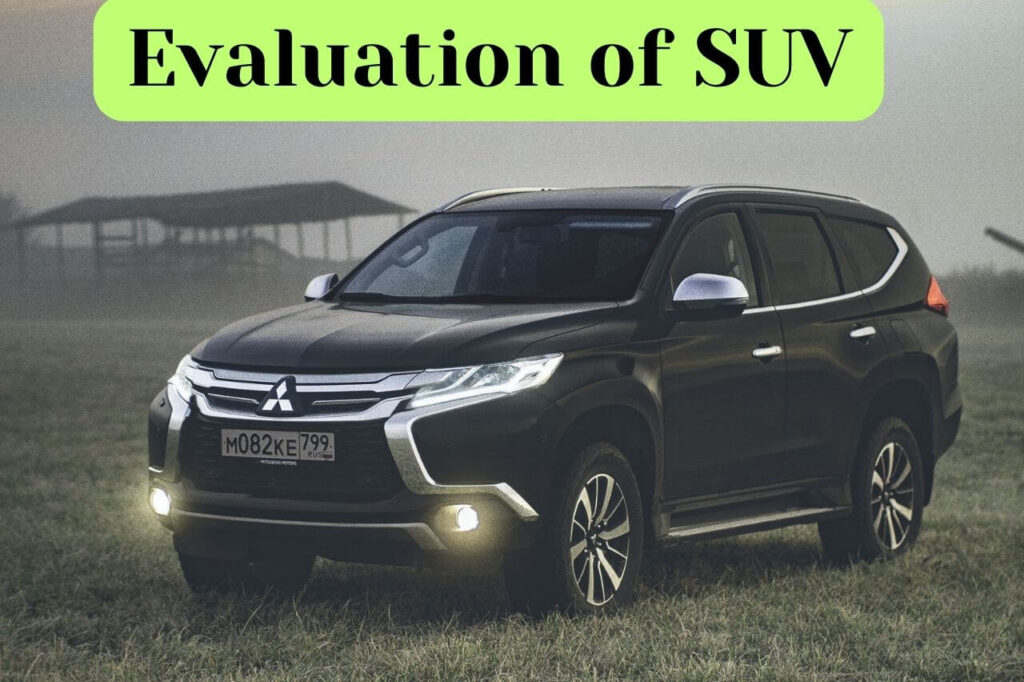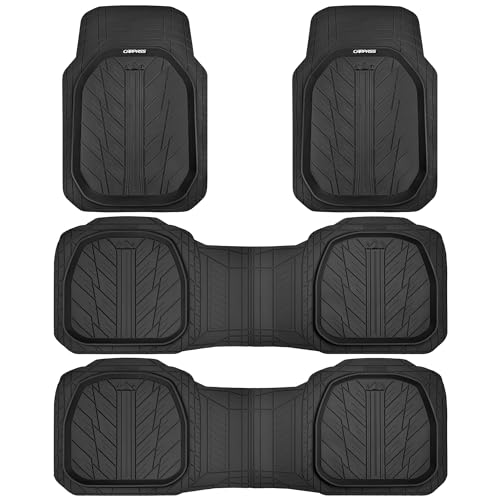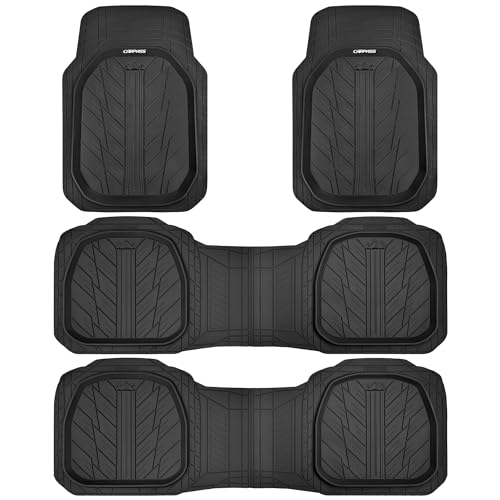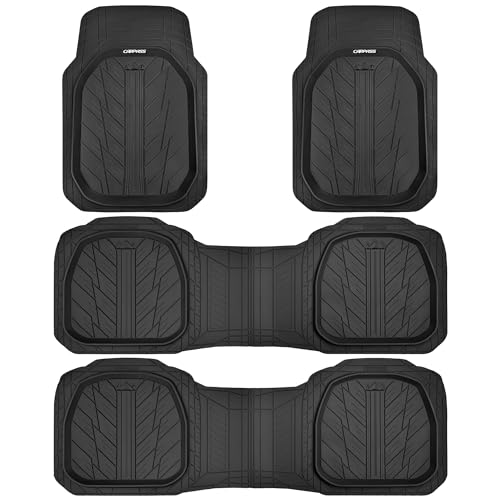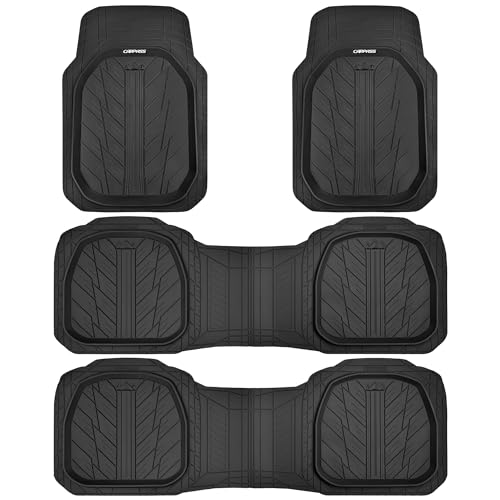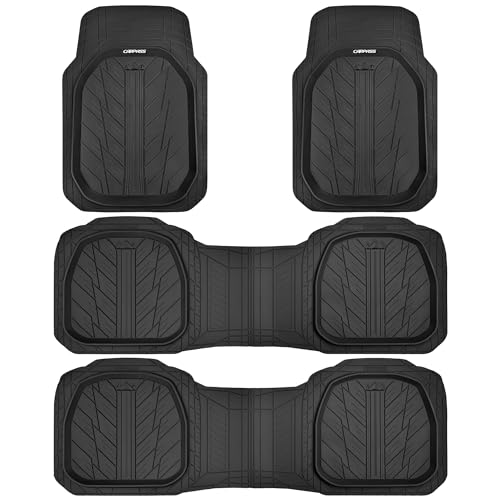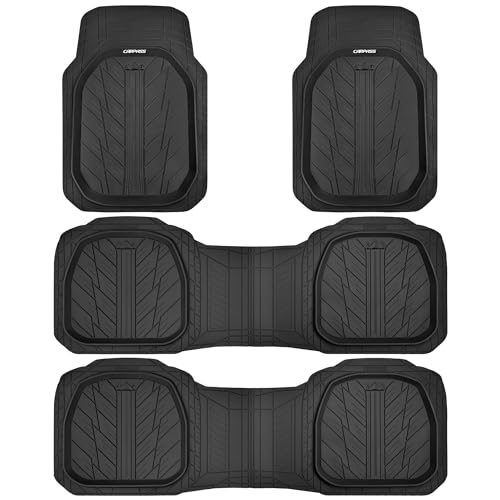SUVs have become the undisputed kings of the road. From soccer moms to weekend warriors, these versatile vehicles seem to conquer every corner of the automotive landscape. With their spacious interiors, commanding driving positions, and impressive towing capacities, they offer a compelling package. But are SUVs truly the perfect fit for everyone? Before you jump on the SUV bandwagon, it’s crucial to weigh the pros and cons to ensure this popular choice aligns with your lifestyle and driving needs.
Unveiling the Allure: Why SUVs Have Taken the Wheel
SUVs reign supreme for a reason. They offer a multitude of advantages that cater to diverse driving needs. Let’s explore some of the key reasons why so many drivers opt for the SUV experience:
- Cargo Kings and Queens : Whether you’re hauling groceries for a large family, packing gear for a camping trip, or transporting sporting equipment, SUVs excel in cargo capacity. Their spacious interiors offer ample room for all your essentials, and with foldable seats, you can easily configure the space to accommodate even bulkier items.
- Safety First : SUVs often boast a strong safety reputation. Their larger size and higher ground clearance can provide a sense of security on the road. Many models come equipped with advanced driver-assistance systems (ADAS) like automatic emergency braking, blind-spot monitoring, and lane departure warning, offering an extra layer of protection.
- Go-Anywhere Capability : For those who crave adventure or require a vehicle for work or hobbies, SUVs offer impressive towing capacity. Whether you need to haul a trailer for a weekend getaway or transport equipment for your business, many SUVs can handle the task. For those who venture beyond paved roads, some SUVs boast exceptional off-road capability, allowing you to navigate challenging terrain with confidence.
- A Commanding View of the Road: The elevated seating position of an SUV offers a significant advantage. Drivers enjoy a wider view of the road, potentially reducing blind spots and enhancing overall visibility. This commanding position can also instill a sense of control and confidence behind the wheel.
The Flip Side: Not All Sunshine and Off-Road Trails
While SUVs offer undeniable advantages, it’s important to be aware of potential drawbacks before signing on the dotted line. Here are some key considerations:
- Fuel Efficiency and the Pump Pain : SUVs tend to be less fuel-efficient compared to smaller sedans or hatchbacks. Their larger size and heavier weight translate to higher fuel consumption, which can significantly impact your running costs. Gas prices can fluctuate, and for drivers who rack up high mileage, fuel efficiency becomes a crucial factor.
- Maneuvering the Maze: Tight Spaces and Handling : SUVs, by nature, have a larger footprint compared to smaller cars. This can translate to challenges in navigating tight parking spaces, narrow city streets, or tricky off-road maneuvers. Drivers accustomed to a car’s agility might find the handling of an SUV less responsive, especially when navigating tight corners or engaging in sharp turns.
- Price Point and Insurance Considerations: SUVs generally carry a higher price tag compared to smaller vehicles. This factor applies not just to the initial purchase price, but also to ongoing insurance costs. Larger vehicles often fall into higher insurance brackets, adding to the overall ownership expense.
- Environmental Impact: Leaving a Larger Footprint : SUVs, due to their lower fuel efficiency, contribute more greenhouse gas emissions compared to fuel-efficient vehicles. For environmentally conscious drivers, this can be a significant concern.
The Perfect Fit: SUV or Not? Tailoring Your Choice to Your Lifestyle
So, the question remains: Are SUVs the perfect fit for everyone? The answer, like most things in life, is a resounding “it depends.” Before succumbing to the allure of the SUV, take some time to honestly evaluate your individual needs and lifestyle.
Here are some key factors to consider:
- Driving Habits: Do you primarily navigate city streets with tight parking spaces, or do you frequently embark on road trips with a car full of passengers and gear? If city driving dominates your routine, the maneuverability of a smaller car might be more suitable. For those who prioritize cargo space and long-distance comfort, an SUV could be ideal.
- Cargo Needs: Do you regularly transport large items like furniture, sporting equipment, or tools? If cargo capacity is a constant concern, an SUV’s spacious interior will likely be a welcome feature. However, if your cargo needs are more modest, a smaller car might suffice.
- Passenger Capacity: How many people do you typically transport? If you have a large family or frequently carpool, an SUV with ample seating is essential. For those who primarily drive alone or with one passenger, a smaller car might be a more practical choice.
- Budget and Desired Features: SUVs generally come with a higher initial purchase price and ongoing insurance costs compared to smaller vehicles. Consider your budget and determine if the additional expense aligns with your financial comfort zone. Additionally, prioritize the features that are most important to you. If features like advanced safety technology or off-road capability are non-negotiables, factor those into your decision.
By carefully evaluating these factors, you’ll be well on your way to determining if an SUV is the perfect fit for your lifestyle and driving needs. Remember, the ideal car is the one that seamlessly integrates into your daily routine, offering the functionality, comfort, and features you require without exceeding your budget or compromising your driving experience.
Beyond the Brochure: Unveiling the Perfect SUV for You
Armed with a clearer understanding of your needs and the pros and cons of SUV ownership, it’s time to delve deeper into your research. Here are some valuable resources to guide you on your SUV exploration journey:
- Online Resources: The internet is a treasure trove of information on SUVs. Reputable automotive websites and online car magazines offer in-depth reviews of specific SUV models, highlighting their strengths and weaknesses. These reviews often include comparisons between popular models in the same class, allowing you to see how different SUVs stack up against each other.
- Some recommended resources include Consumer Reports, Kelley Blue Book (KBB), Edmunds, and Car and Driver. These websites provide user reviews, expert ratings, safety information, and detailed comparisons to help you make an informed decision.
- Test Drives are Key: Once you’ve narrowed down your options based on research, it’s crucial to get behind the wheel and experience different SUV models firsthand. Schedule test drives at dealerships to get a feel for the size, handling, features, and overall comfort of the SUVs you’re considering. Pay attention to aspects like visibility, interior space, and how the SUV handles different road conditions. Don’t hesitate to ask the salesperson questions and voice any concerns you might have.
By combining thorough research with firsthand experience through test drives, you’ll be well-equipped to make a confident choice when selecting the perfect SUV for your needs.
People Also Ask: Are SUVs Safe?
Safety is a top priority for many car buyers, and SUVs often get a reputation for being safer vehicles. There’s some truth to this perception.
While safety ultimately depends on the specific model and how it’s driven, many SUVs do offer advantages:
- Advanced Driver-Assistance Systems (ADAS) : Modern SUVs are increasingly equipped with advanced safety features like automatic emergency braking, blind-spot monitoring, and lane departure warning. These systems can play a crucial role in preventing accidents by alerting drivers to potential hazards and intervening in critical situations.
- Higher Ground Clearance: The elevated platform of an SUV can provide a perception of safety in certain situations. In a collision with a smaller car, the higher ground clearance may offer some protection to the SUV’s occupants. However, it’s important to remember that safety is a complex issue, and relying solely on ground clearance is not advisable.
It’s important to remember that safety features vary greatly depending on the make, model, and trim level of an SUV. Always thoroughly research the specific safety features offered by the SUV you’re considering before making a purchase decision.
Conclusion:
The allure of the SUV is undeniable. They offer a compelling package of space, capability, and a commanding driving position. However, before joining the SUV revolution, it’s crucial to carefully evaluate your individual needs and lifestyle.
By thoughtfully considering your driving habits, cargo requirements, passenger capacity, and budget, you can determine if an SUV is truly the perfect fit for you. Remember, the ideal car should seamlessly integrate into your life, offering the functionality and features you require without compromising your driving experience or financial comfort.
SUVs can be fantastic vehicles, conquering off-road adventures and offering a sense of security for families on the go. But if your needs are better met by a fuel-efficient sedan or a nimble hatchback, there’s no shame in opting for a vehicle that aligns more closely with your lifestyle. The key is to make an informed choice, ensuring your next car becomes a trusted companion on all your journeys.
So, buckle up and visit SUVTale.com today! Let’s explore the world of SUVs together and help you find the perfect vehicle to conquer your next adventure, big or small.

